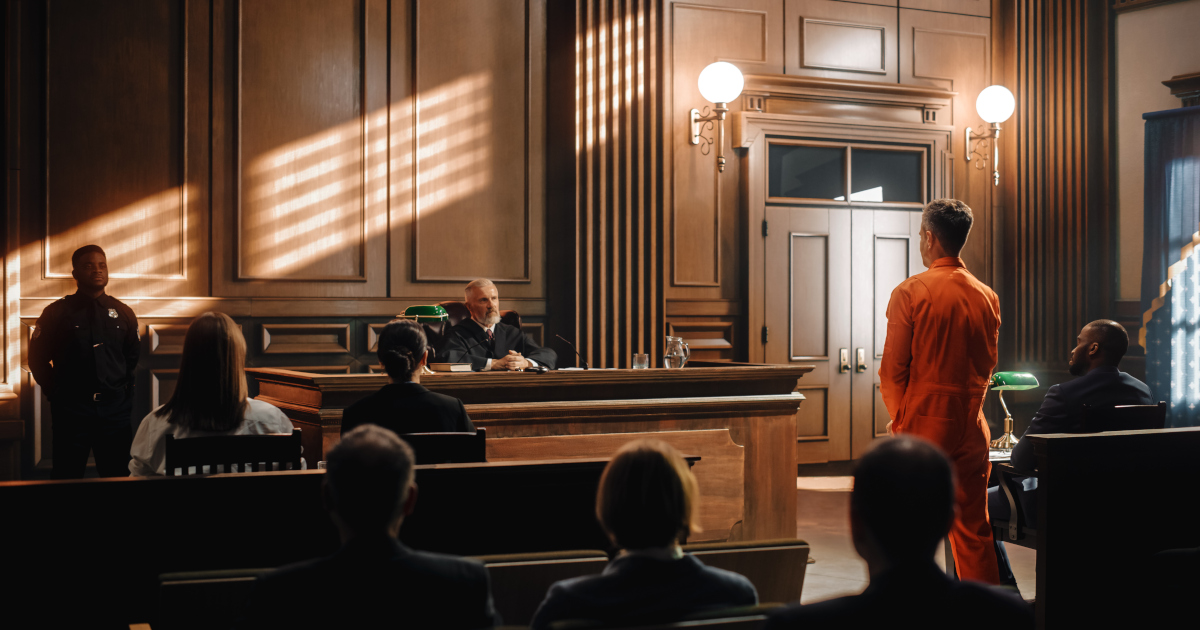
April 3, 2023 – A prosecutor who breached a plea agreement by making a specific recommendation for prison time cured the breach by withdrawing the recommendation, the Wisconsin Supreme Court has unanimously held.
In State v. Nietzold, 2023 WI 22 (March 28, 2023), the supreme court also held (7-0) that defense counsel’s failure to immediately object to the breach was not ineffective assistance of counsel.
Plea Deal
In May 2019, pursuant to a plea agreement, Robert Nietzold, Sr. pled no contest to one count of repeated sexual abuse of a child in Vernon County Circuit Court.
 Jeff M. Brown , Willamette Univ. School of Law 1997, is a legal writer for the State Bar of Wisconsin, Madison. He can be reached by
email or by phone at (608) 250-6126.
Jeff M. Brown , Willamette Univ. School of Law 1997, is a legal writer for the State Bar of Wisconsin, Madison. He can be reached by
email or by phone at (608) 250-6126.
Under the terms of the plea agreement, the prosecutor was allowed to argue for a prison sentence but agreed not to recommend a specific term of imprisonment.
In the pre-sentence investigation report (PSI), the state Department of Corrections (DOC) recommended 12 years of initial confinement and 10 years of extended supervision.
During the sentencing hearing, the prosecutor asked the court to sentence Nietzold to 12 years of initial confinement and 15 years of extended supervision.
After the prosecutor finished, Nietzold’s attorney pointed out that the prosecutor had breached the plea agreement by recommending a specific prison sentence.
The judge asked whether the prosecutor would make a recommendation separate from the PSI. The prosecutor said he would not recommend a prison sentence.
Neitzold’s attorney then asked for a sentence that included two or three years of initial confinement.
Prosecutor vs. DOC
Later during the sentencing hearing, the judge mentioned that the state had recommended 12 years of initial confinement.
The prosecutor then reminded the judge that he hadn’t made any recommendation as to initial confinement.
The judge replied that when he said “state,” he meant DOC. The judge also acknowledged that the prosecutor had withdrawn his recommendation of 12 years initial confinement.
The judge sentenced Nietzold to 15 years of initial confinement and 10 years of extended supervision.
Appeal and reversal
Nietzold filed a motion for post-conviction relief, based on the prosecutor breaching the plea agreement during the sentencing hearing.
The circuit court denied the motion. Nietzold appealed.
The Wisconsin Court of Appeals concluded that the prosecutor had materially breached the plea agreement and reversed the circuit court’s decision.
The state appealed.
Contract Rules Apply
Justice Brian Hagedorn began his opinion by explaining that a plea agreement is a contract and can therefore be breached.
Under supreme court case law, Hagedorn noted, a prosecutor breaches a plea agreement when he or she fails to abide by the sentencing recommendation negotiated as part of the deal.
To vacate a plea because of a breach of a plea agreement, Justice Hagedorn pointed out, a defendant must prove by clear and convincing evidence that the breach was both material and substantial.
But even if a prosecutor makes a material and substantial breach of a plea agreement, Hagedorn explained, under both Wisconsin Supreme Court and U.S. Supreme Court case law, the prosecutor can cure the breach – just as a party can cure the breach of a commercial contract .
In State v. Smith, 207 Wis. 2d. 258, 558 N.W. 2d 379 (1997), Justice Hagedorn noted, the supreme court held that the state breached a plea agreement when it recommended a term of imprisonment despite its agreement not to do so – a breach that went uncured because the defendant’s attorney didn’t object to it.
“In other words, had the prosecutor been alerted to the error and corrected it, the initial breach may have been cured,” Hagedorn wrote.
Prosecutor Cured Breach
Justice Hagedorn concluded that the prosecutor in Nietzold’s case had cured his breach.
“Moments after those offending comments, defense counsel informed the court of the prosecutor’s error,” Hagedorn wrote. “The prosecutor immediately acknowledged the blunder and modified the state’s recommendation to an undefined prison term – exactly what Nietzold agreed to.”
Furthermore, Justice Hagedorn pointed out, the prosecutor corrected the judge when the judge said that the state had recommended a term of 12 years’ initial confinement, and the judge then clarified that by “state” he meant DOC.
“We accept this as a finding of the circuit court that the prosecutor did withdraw his earlier, erroneous comments, and was recommending only an undefined prison term,” Hagedorn wrote.
“And we conclude the prosecutor’s immediate and unequivocal retraction of his error – and subsequent actions affirming that retraction – constitute a sufficient cure, transforming the material and substantial breach into a non-material breach.”
Retraction Was Unequivocal
Nietzold argued that the prosecutor’s cure was “too little, too late,” and cited State v. Williams, 2002 WI 1, 249 Wis. 2d. 492, 637 N.W.2d 733.
But Hagedorn pointed out that in Williams, the prosecutor implied that if he’d known more about the defendant, he wouldn’t have agreed to the plea agreement.
“The attempted retraction was therefore rather equivocal, coming with a ‘covert message to the circuit court that a more severe sentence was warranted than that which had been recommended,’” Justice Hagedorn wrote.
In Nietzold’s case, by contrast, Hagedorn reasoned, the prosecutor’s retraction was unequivocal.
No Ineffective Assistance of Counsel
Nietzold also argued that his attorney had provided insufficient assistance of counsel by not objecting to the prosecutor’s breach of the plea agreement as soon as it occurred.
“Perhaps defense counsel would have done better to object earlier when the prosecutor first began considering an appropriate sentence length,” Hagedorn wrote. “But this kind of imperfection does not rise to the level of constitutionally deficient performance in this case.”
